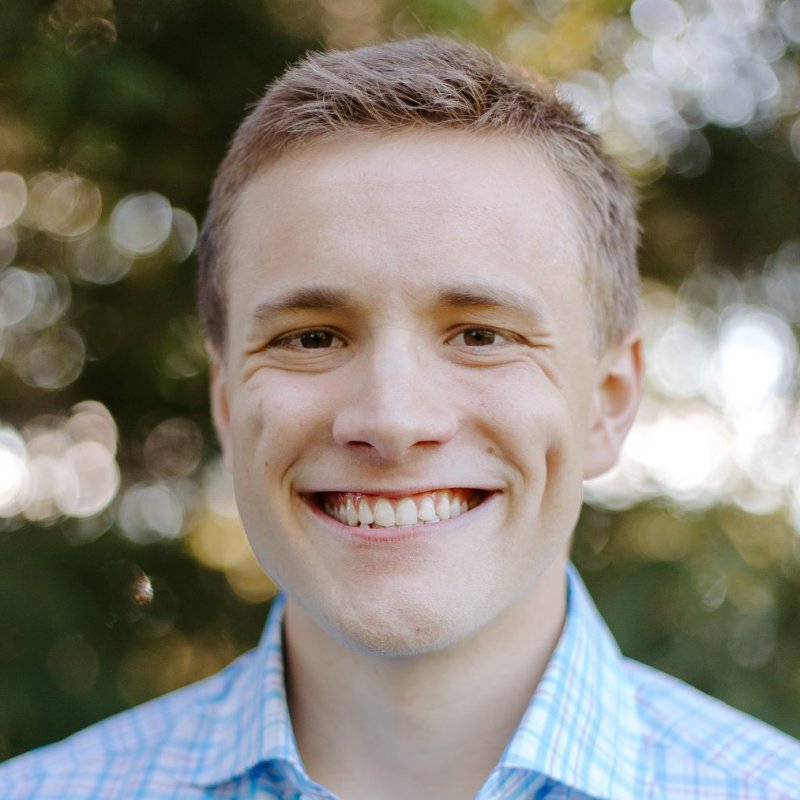Taking Back Our Innocence
There is a particular obsession in our culture with “losing your innocence.” You can see it just about anywhere: the beauty ads in the mall targeted at teens, the sexualized billboards on the highway, or, as is often my case, watching coming-of-age rom-coms with my little sister.
After collecting a sturdy sample size, I’ve noticed that these teen rom-coms tend to strike upon the same general plotline. As it usually goes, the main character, naive in the eyes of her peers, is led down a journey of questioning her moral compass. Little by little, after being exposed to the wild side by her friends, she’ll start to do as her friends do and then ultimately become “one of the gang.” Any kinship she had prior with her parents or religious community will be duly shed; in these movies, religion is portrayed as a repressive and backwards institution that exists only to judge people, and parents seem to be deputized enforcers enlisted by the prudish, catty church ladies running the show from behind the scenes. The journey of self-discovery reaches its end when the main character throws her hands up in the air and pursues her own desires without regard for others. Then, and only then, does she finally “get it,” and then the film is resolved.
This plotline surely sounds familiar, and for good reason; the directors and writers of these movies know that they’re striking a nerve. They wouldn’t want to make movies that don’t succeed, so they do their best to make movies that speak to the common experiences of the audience.
They are getting one thing dead-on: there is a desire among all young people to be recognized as mature. Being “mature” entails a lot of things: independence, capability, and the experience that indicates that you know how to handle life’s curveballs. The desire to be mature is good and holy. If we allow it, this drive within us can be the starting point of some great positive changes in our lives. It can be a wake-up call when we’re being immature. It can encourage us to be more understanding and sympathetic to the people God has put in our lives. It can push us to step up to the plate and tackle menacing challenges that we didn’t think we could handle until trying.
However, at this point in time, our culture has a profound misunderstanding of our desire for maturity. It doesn’t associate maturity with doing the right thing. Instead, it preaches precisely the opposite. In an upright society, maturity and virtue should be seen as inseparable. As we grow older and our consciences develop from age and experience, we should be more and more equipped as we go on to do what’s right. The wisdom we gain from age should only be a tool to help us gradually become better people. Maturity, then, is measured by much more than whether you got your driver’s license last week (yes, that was intentional); it’s measured by the goodness of your actions. While age is part of it, maturity can transcend it; this is why you may hear from a relative that you have “wisdom beyond your years.” If you received this compliment, it’s likely not because you decided to start acting up and behaving in this selfish way that our culture has lionized.
However common and simple this point may seem, peer pressure still has an incredibly strong effect on young people who are so desperately seeking answers to the cries of their hearts. It’s so easy as young people to take the compliments of our elders for granted and seek validation from our peers. I have had more friends than I can count struggle with this problem so, so much. Over middle school, high school, and college, the same insecurity has remained. My friends, all invaluable children of God, bought the lie that their worth was tied up in the approval of their peers. They felt like they had to give in to the toxic culture around them in order to finally win over friends, even if the “friends” they won never had their backs in the first place. They believed that their innocence was a setback that prevented them from being a part of the “group,” and they wanted to lose it as quickly as possible.
Choosing these kinds of friends only made my friends feel less secure about themselves, as we do when we believe lies about who we are. They believed that something was “wrong” about themselves until they behaved as their peers did without discerning whether their peers had their noggins screwed on straight. They didn’t feel like they “fixed” anything.
A common response arises when this happens. Going down this path, you feel more empty inside than you did before, and the search for meaning carries on. Unfortunately, this can lead us down a very dark path; we realize our brokenness, and we let it define us. It’s so easy to forget God’s unconditional love for us and believe that, now that we’ve “lost our innocence,” there’s no turning back. In this place, we can start to believe the lie that we’re “damaged goods” and that we’re beyond redemption. Absent from God, hope seems distant, almost insulting to think about.
This is where, all too often, people harbor negative feelings about the Church. Many people who feel the weight of their brokenness look at the pews and see a bunch of people putting on a face and using their religion as an opportunity to judge people they think are “less Christian” than themselves. They look at fellow imperfect people and ask, “why do they act like they’re better than me?” Many have been judged by Christians who disobeyed Christ’s teaching not to judge others and went ahead anyway with a prudish and judgmental outlook towards their peers. If this is your experience, I am deeply sorry. You do not deserve to be judged and looked down upon. You deserve to be upheld in spite of anything you may have done. You deserve to be unconditionally loved.
Innocence, then, is not something that we lose; it’s something that we cultivate. It’s an entire way of living–it’s the habit of seeing ourselves as God does. Innocence is a daily commitment to knowing that, in spite of all the evil that exists in the world, that God still loves us endlessly and that life is worth living. It’s understanding that we will always be beloved children of God, and acting accordingly.
Because innocence is about the way we choose to live instead of what we’ve done in the past, God gives us the opportunity at every moment to take it back and start anew. Of course, it’s understandable to start asking questions in reply:
“Could God really forgive me after all I’ve done?”
“If God knew the real me, would He still love me?”
“What if I’m the exception?”
It’s normal to ask these questions, and you’re not alone if you feel this way. Our world has a way of convincing us that we’re alone when we’re not; with equal force, it also has a way of convincing us that we’re not worthy of love, even though the Author of existence has said otherwise.
It’s never too late to pick yourself back up and start anew. You are not the exception and you will never stop being worthy of unconditional love. No matter what the world may throw at you, you are not and never will be “damaged goods.”
I encourage you to get to know the people in your life you look up to most. I guarantee (with a fairly high degree of certainty) that they’ve made mistakes in their lives. The happiest people I have in my life have gone through tremendous hardships and have made huge mistakes. They all bought the lie at some point that they were the exception and they were irredeemable. It’d be easy to examine their lives from a distance and wonder how they could possibly turn it around.
In spite of this, they still manage to live such beautiful and holy lives! As hard as their pasts were, these people still manage to charge ahead and look at life with the eyes of a child. They have a new lease on life, and don’t let their past selves bog down who they can be right this moment. They know that they’re forgiven, and have a reason to keep on going.
The happiest, holiest people aren’t those who have managed to not screw up yet. They’re people who have lived life and found God in their stories–especially in the moments where they previously thought He couldn’t have been there.
There’s no reason you can’t live the same lifestyle as your role models! Just as they do, you have it in your power to choose innocence and make every day a fresh start.
Living this way will make you stand out, but I encourage you to not cave into peer pressure. A priest I know had a quote about this: “don’t listen to the crowds, or majorities, or what’s popular; love is not democratic. A majority of people now say you deserve love, therefore you do–think about how ridiculous that sounds!” You won’t finally be happy once you’re popular; you’re already loved right now! You do not need a crowd to validate your inherent goodness.
I encourage you to go even further and stand out from the crowd by choosing innocence. It sends such a message to live a life that sticks out for the right reason. Deliberately trying to cultivate an innocent life sends a message; if you know who you are and are so convicted that you’re willing to defy everyone around you trying to pressure you, you’re on the right track.
Finally, remember that it’s never too late. You’re never too far gone, never damaged goods. God loves you exactly as you are right now. There may be a sea of people trying to pressure you to do as they do and then tell you that you’re beyond repair, but they don’t see you as God does. Every second is a chance to get back up and try again with renewed spirit, heart ablaze, armed with the knowledge that you’re His unmistakable, beloved child.


